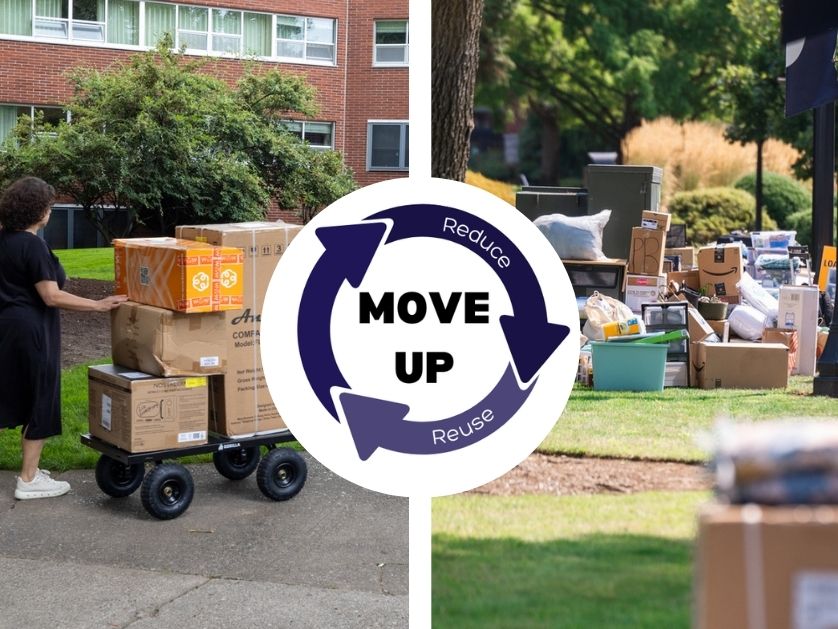Residence Life
Business
April 2, 2025
 University of Portland Economics Professor Ruth Dittrich is on a mission to turn a bi-annual campus blight into a long-term win for the environment.
University of Portland Economics Professor Ruth Dittrich is on a mission to turn a bi-annual campus blight into a long-term win for the environment.
It afflicts The Bluff during early-May move-out activities, when students cram dorm-room dumpsters with unwanted mini-fridges, desk lamps, microwaves—items that just won’t fit on the ride or flight home for summer break.
Fast forward to late-August move-in days, when newly purchased mini-fridges, desk lamps, and microwaves create Styrofoam and cardboard waste.
Thanks to an imaginative grant from Oregon’s Department of Environmental Quality, UP’s move-in, move-out cycle of unnecessary waste will give way to responsible recycling starting this spring when students exit residence halls.
DEQ recently awarded the University just over $98,000 for a two-year start-up initiative to collect reusable items as students move out of residence halls, store those items over the summer, and resell them at a reduced cost to incoming student residents at fall semester move-in.
Dittrich is running point on “Move UP: Reduce and Reuse”—one of 14 programs DEQ funded across the state to encourage waste prevention and “reduce the environmental and human health impacts of materials at all stages of their life cycle” according to the agency.
In addition to encouraging students to recycle unwanted dorm room items at the end of the school year, Dittrich says the University will donate clothing, bedding, food, and hygiene articles to community organizations.
“UP Students genuinely care about sustainability, but often don’t know where to start,” Dittrich said. “The Move UP project will give our students a clear, easy way to take action. By donating and reusing these items, we can significantly reduce waste, lower costs for students, and build a more sustainable campus community.”
The DEQ grant provides for two paid student workers to head up the program, guided by a faculty lead. Additional students will be hired around collection and redistribution times, while ASUP and University clubs will be tapped to assist and raise awareness. Several UP departments, led by Facilities Services, will provide storage and logistical support.
Move UP will create an online inventory of available items that students can purchase at a reduced price prior to fall move-in. “We’ll have five-and-10 dollar items for sale, which can reduce the financial burden as students budget for a new school year,” Dittrich said. “Students who join this effort will help our university cut waste while fostering a campus culture of reuse.”
University of Portland
5000 N. Willamette Blvd.,
Portland, Oregon 97203-5798
503.943.8000
This website uses cookies to track information for analytics purposes. You can view the full University of Portland privacy policy for more information.
